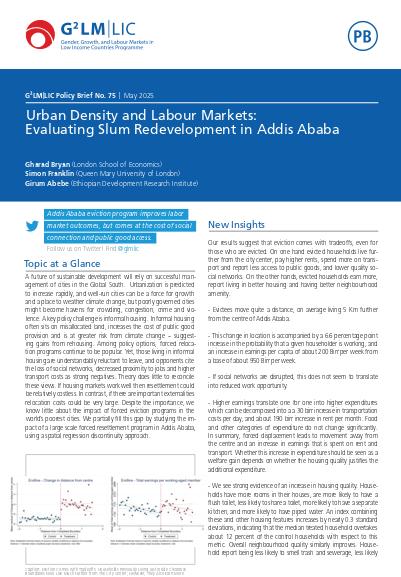A future of sustainable development will rely on successful management of cities in the Global South. Urbanization is predicted to increase rapidly, and well-run cities can be a force for growth and a place to weather climate change, but poorly governed cities might become havens for crowding, congestion, crime and violence. A key policy challenge is informal housing. Informal housing often sits on misallocated land, increases the cost of public good provision and is at greater risk from climate change — suggesting gains from rehousing. Among policy options, forced relocation programs continue to be popular. Yet, those living in informal housing are understandably reluctant to leave, and opponents cite the loss of social networks, decreased proximity to jobs and higher transport costs as strong negatives. Theory does little to reconcile these views. If housing markets work well then resettlement could be relatively costless. In contrast, if there are important externalities relocation costs could be very large. Despite the importance, we know little about the impact of forced eviction programs in the world’s poorest cities. We partially fill this gap by studying the impact of a large scale forced resettlement program in Addis Ababa, using a spatial regression discontinuity approach.
